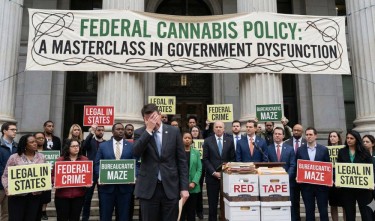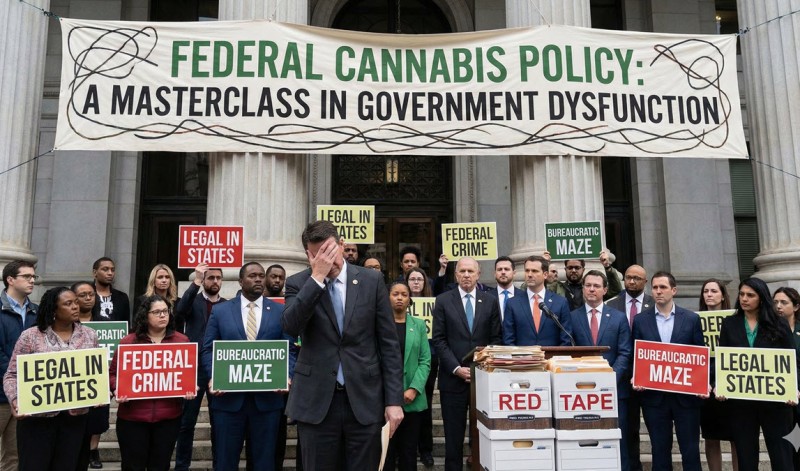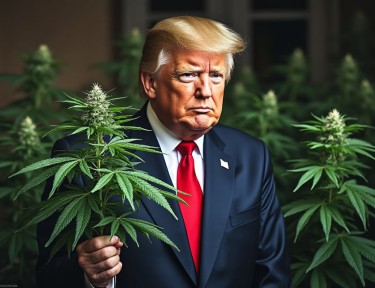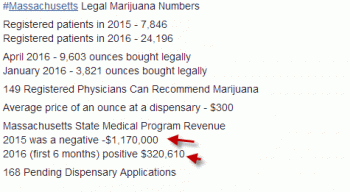
Let me paint you a picture of where we are right now with federal cannabis policy: it's a complete shitshow. And I don't use that term lightly. We're living in a moment where the federal government has managed to create the most confusing, contradictory, and dysfunctional cannabis policy in the 90-year history of prohibition. That's saying something.
If you're confused about what's legal, what's not, what's being enforced, and what the government's actual position is on cannabis—congratulations, you're paying attention. Because nobody, and I mean nobody, actually knows what the hell is going on. Not the industry. Not the lawyers. Not even the people supposedly driving the bus.
How We Got to This Mess
To understand the current chaos, you need to appreciate that federal cannabis policy has always been a mess. We're talking about a 90-year legacy of bad decisions, starting with the Marihuana Tax Act of 1937—a piece of legislation born from racism and corporate interests—and continuing through the Controlled Substances Act, various amendments, farm bills, and a constantly shifting patchwork of informal positions that the feds take and abandon based on whatever political winds are blowing that day.
But what we're experiencing now? This is a new level of dysfunction. We've got simultaneous and contradictory actions happening across different branches of government, leaving everyone from massive cannabis corporations to small hemp farmers to individual consumers scratching their heads wondering what's actually legal.
The Legislative Chaos: The Hempnoids Ban
Last week, Congress decided to ban intoxicating hemp products by redefining "hemp," effective November 2026. This caught most people by surprise, though it probably shouldn't have. The so-called "loophole" that allowed hemp-derived THC products to flourish was always contentious, and proposals to close it had been floating around for a while.
But here's the thing: Congress did a spectacularly bad job with this legislation. We now have a convoluted regime of exclusions to exclusions, definitions that are still forthcoming, and potential workarounds already being spotted by industry lawyers. It's legislative whack-a-mole, and the moles are winning.
The one-year runway before this ban takes effect is being viewed by many as a reprieve—a chance to negotiate, reverse, or modify this ban through a Farm Bill renewal or some other mechanism. But that's wishful thinking. The reality is that we've just added another layer of confusion to an already incomprehensible system.
The Administrative Limbo: Rescheduling on Ice
Meanwhile, marijuana rescheduling—the process that was supposed to move cannabis from Schedule I to Schedule III—is apparently on ice. Trump himself claimed in August that a decision would be made "in the next few weeks." Last week, we were told the review is still "ongoing."
Let's be clear: Trump endorsed rescheduling on the campaign trail. But as we've seen time and time again, campaign promises and actual governance are two very different things. And honestly? The stalled rescheduling process was misguided from the start. Moving cannabis to Schedule III wouldn't have solved the fundamental problems—it would have just created a new set of issues while handing Big Pharma control over the medical cannabis market.
As it stands, marijuana remains in Schedule I, alongside heroin and LSD, classified as having "no accepted medical use" despite overwhelming evidence to the contrary and despite 38 states having medical cannabis programs.
The scuttlebutt from industry insiders, government affairs folks, and people making pilgrimages to Mar-a-Lago suggests that nobody actually knows what's happening next. Not even the people supposedly making the decisions. We're flying blind, and the people at the controls don't seem to have any idea where they're steering the plane.
The Enforcement Mystery
Here's where things get even weirder: nobody knows what's actually being enforced and what's not.
The Justice Department isn't enforcing federal cannabis prohibition in the context of state marijuana programs. They never really have, thanks to informal policies and limited resources. The FDA isn't enforcing the Food, Drug & Cosmetics Act with respect to hemp-CBD products. They never really have either.
So what is the government prioritizing? Apparently, blowing up boats in the Caribbean Sea. We're up to 20 boats destroyed, according to recent reports. Meanwhile, the vast majority of drugs entering the United States come through legal ports of entry, but addressing that would require actual policy solutions instead of theatrical displays of "toughness."
Oh, and one federal prosecutor in Montana, Darin Smith, just announced his office would ramp up prosecution of misdemeanor marijuana offenses on federal lands. Because apparently, busting people for possessing a joint in Yellowstone is a great use of limited federal resources.
This announcement came pursuant to a new Justice Department policy issued in September—a policy that most people in the industry haven't even seen. Other DOJ prosecutors have remained silent about whether they'll follow suit.
Why This Confusion Is Terrible for Everyone
This state of chaos isn't just annoying—it's actively harmful to everyone involved, including the government itself.
It Corrodes Government Trust: When the federal government can't maintain a consistent, coherent position on something as straightforward as whether a plant should be legal, people stop trusting government competence. And they should. This mess demonstrates that the people making these decisions either don't understand the issues or don't care about creating functional policy.
It Wastes Resources: Federal prosecutors spending time and money on misdemeanor marijuana possession cases on federal lands? The FDA ignoring its own regulations? Congress passing laws so poorly written that they need immediate clarification and workarounds? This is government waste on a massive scale, all focused on criminalizing a substance that the majority of Americans support legalizing.
It Creates and Empowers Black Markets: When legal businesses can't operate with any certainty about what's legal and what's not, when regulations change constantly, when enforcement is arbitrary and inconsistent—you create the perfect environment for black market operators. Why bother trying to comply with regulations that might change next week when you don't even know what those regulations actually mean?
It Harms Genetics and Innovation: The new hemp THC ban is particularly devastating for cannabis genetics. As MJ Biz Daily points out, this ban threatens decades of breeding work and innovation. Breeders who've spent years developing specific genetics for hemp production are now facing the possibility that their work will be illegal. Interstate commerce in genetics is about to become incredibly complicated, if not impossible.
This isn't just about business—it's about the loss of genetic diversity and the suppression of agricultural innovation. When you create legal uncertainty around plant genetics, you discourage research, development, and the kind of innovation that could lead to better, more effective cannabis products for both medical and recreational users.
The Silver Lining: An Opportunity for Real Legalization
Here's the thing about chaos: it creates opportunities. And right now, we have an opportunity to push for something that should have happened decades ago—full federal legalization of cannabis.
As Marijuana Moment argues in a recent op-ed, the new federal hemp ban is actually an opportunity to legalize cannabis across the board. The current system isn't working for anyone. It's not protecting public health. It's not preventing youth access. It's not reducing drug abuse. It's just creating confusion, wasting resources, and empowering black markets.
The argument for full legalization is stronger now than ever:
Policy Consistency: A clear, nationwide framework for cannabis legalization would eliminate the current patchwork of contradictory federal and state laws. Businesses would know what's legal. Consumers would know their rights. Law enforcement would know what to enforce.
Public Safety: Regulated markets with testing, labeling, and quality control are safer than black markets. This isn't theoretical—we've seen it play out in states with functional legal markets.
Economic Benefits: Legal cannabis markets generate tax revenue, create jobs, and support local economies. The economic argument for legalization is overwhelming.
Criminal Justice Reform: We've incarcerated millions of people for cannabis offenses, disproportionately destroying minority communities. Full legalization is a step toward addressing these historical injustices.
Scientific Research: Federal prohibition continues to hamper cannabis research, limiting our understanding of the plant's medical potential. Legalization would remove these barriers and accelerate scientific discovery.
The Reality Check
Will the federal government actually seize this opportunity? Probably not. The people making decisions seem more interested in political theater than functional policy. They're more focused on appearing tough on drugs than on creating systems that actually work.
But here's what's going to happen regardless of what the feds do: the cannabis industry will continue doing what it's always done. It will ignore the federal regime as much as possible and simply carry on. State-legal markets will keep operating. Hemp farmers will find workarounds. Consumers will keep consuming.
The federal government can either acknowledge reality and create functional policy, or it can continue this performative chaos while the industry and millions of Americans ignore them. Either way, cannabis isn't going anywhere.
The Sticky Bottom Line
Federal cannabis policy is more confusing than ever, and that's not an accident—it's the result of a century-long mashup of prejudice and incompetence, without credible regard for science, public health, or economic considerations.
We've got Congress banning hemp derivatives while marijuana rescheduling sits in limbo. We've got prosecutors announcing crackdowns on misdemeanor possession while the DOJ ignores state-legal markets. We've got hemp farmers facing the loss of genetics they've spent years developing while the FDA refuses to enforce its own regulations on CBD products.
This isn't policy. This is dysfunction masquerading as governance. And it's terrible for everyone involved—except maybe the black market operators and the private prison industry that profits from cannabis arrests.
The solution is obvious: full federal legalization with sensible regulation. Create a clear framework, respect state autonomy to set their own rules within that framework, and move on to actual problems that require government attention.
Will it happen? Who knows. But one thing's certain: the current state of affairs is unsustainable. Something's going to give, and when it does, the cannabis industry will be ready. Because unlike the federal government, the cannabis industry has always been good at adapting to chaos.
It's what we do best.







